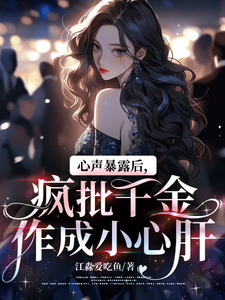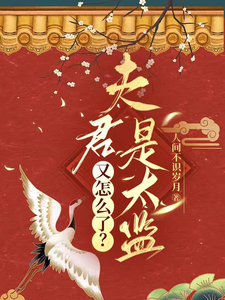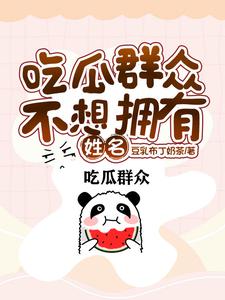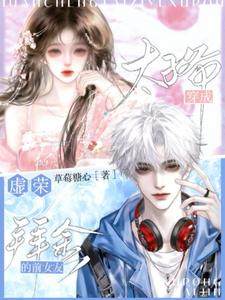As the golden sun dipped below Zhou Bridge, the sweltering summer heat began to dissipate, and the city of Bianjing buzzed with life.
By the Bian River, lush green orchids flourished along the banks, and the water's surface was nearly covered with floating lanterns. Most were shaped like blooming lotus petals, crafted from colored paper with flickering candles inside. Their soft glow shimmered as they drifted along the winding river, resembling a trail of fallen stars scattered across the water.
It seemed as though the entire city had poured out to celebrate. Shen Miao’s shop was packed to the brim—not a single table stayed empty for more than half an hour. The dozen or so freshly roasted ducks from the backyard sold out in the blink of an eye. Nearly every new customer who walked in, enticed by the novelty, ended up ordering at least half or even a whole duck.
Tang Er’s hands were nearly cramping from slicing duck after duck, yet he stubbornly refused to give in.
The shop had been renovated, its depth unchanged but its width doubled, transforming from a vertical rectangle to a horizontal one. Tao, wearing thick cotton gloves Shen Miao had sewn for her, expertly balanced dishes in both hands as she darted through the crowd, her voice crisp and clear: "Make way! Make way!"
She weaved through the throng of people with the agility of a snake.
In the backyard, the newly built jujube-mud oven stood ready. Fu Xing, sweating profusely in his open-fronted short jacket, was busy hanging the last few ducks inside—only five or six remained for the day.
From dawn till dusk, Shen Miao, Fu Xing, and Tang Er had worked tirelessly, managing to prepare just over twenty ducks.
Roasting duck was no simple task. First, selecting the right duck was crucial—not too large, as older ducks tended to be tough or overly fatty. A small white duck weighing around five to six jin was ideal.
After purchasing live ducks, Tang Er assisted Shen Miao in slaughtering them. Care was taken to make a precise cut near the trachea for bleeding and gutting. Once plucked and cleaned, the ducks underwent "scalding"—pouring boiling water over the skin to tighten it, ensuring a crispier roast.
The scalded ducks were dried, then inflated through a thick reed stalk to separate the skin from the fat—another step for achieving that perfect crispiness. Next, a secret glaze of malt sugar, rice wine, and other seasonings was evenly brushed over the duck before it was hung to air-dry for two hours.
Only after drying could the ducks enter the oven. The choice of firewood mattered too—jujube and pear wood were preferred for their fragrant smoke, which subtly infused the meat. Shen Miao opted for jujube wood, and the aroma of the finished ducks left her inhaling deeply in delight.
After all, most modern roast duck shops had switched to electric ovens, making the scent of fruitwood-roasted duck a rare luxury.
Even in the oven, the ducks demanded attention. Unlike modern electric rotisseries, Shen Miao’s setup required manual labor. Someone had to monitor the fire while slowly turning the spit at regular intervals to ensure even cooking. Roasting a single batch meant standing vigil for over half an hour.
Fortunately, before the duck service began, Shen Miao’s three new employees had settled in. Fu Xing, with years of kitchen experience, was adept at controlling heat. Aside from his penchant for bragging, he was reliable.
Shen Miao assigned him to roast ducks—a job requiring stamina and patience, perfect for him.
Previously a cook for a minor ninth-rank official, Fu Xing had a few signature dishes up his sleeve, particularly his rich bone broth. The moment Shen Miao finished renovating, he arrived with a bundle of ragged clothes, eager to prove himself. Upon entering her kitchen, he marveled at everything, sniffed the broth pot, and immediately offered advice: "Miss Shen, try adding half a chicken frame to the pork bone broth—it’ll be even more flavorful."
Shen Miao tried it, and sure enough, even Dr. Yao, a regular who came for her yangchun noodles, noticed the difference, praising the richer taste.
Beyond broth, Fu Xing excelled at making shepherd’s purse dumplings—a rarity in Bianjing, as it was a southern dish. He’d learned it from his former employer, an elderly lady from Huating County (modern-day Shanghai) in Liangzhe, who swore by the saying, "On the third day of the third month, shepherd’s purse rivals peonies."
He also mastered southern chicken dishes like "white-cut chicken" and "scallion oil chicken." Shen Miao couldn’t help but wonder if his former employer had been a fox spirit, given their obsession with poultry.
However, Fu Xing’s knife skills paled next to Tang Er’s, and his dough-making needed work.
Tang Er, as it turned out, was nothing like Shen Miao’s first impression. At the employment agency, he’d been so quiet she assumed he was shy. But after two days of settling in, he transformed entirely, chattering nonstop to every living thing in the household, his speech thick with northern slang.
"Aw, dang it, mutt! What’re ya doin’? No wonder these chicken butts are missin’ feathers—ya been lickin’ ’em! Quit eatin’ that nasty stuff, learn somethin’ decent!"
He clamped Zhuifeng’s snout shut, dragging the dog off to wash its mouth, then spotted Sister Xiang happily sharing peaches with Tao on the porch after already devouring two sesame candies. Unable to resist, he teased, "Girl, ya might wanna slow down. Yer face is rounder than a pancake now."
Sister Xiang pouted indignantly while Tao hurled a peach pit at his head. "Mind yer own business, will ya?"
"Fine, fine! Round face’s lucky, round face’s blessed." Grinning goofily, he pocketed the pit. "Don’t waste it—there’s still kernel inside. I’ll crack it open later, make ya both walnut porridge."
Despite his talk, Shen Miao quickly discovered his culinary skills were limited—his true talent lay in his blade work.
Slaughtering poultry, butchering pigs, deboning meat—he did it all with terrifying precision.
He hardly needed to look, his knife slipping effortlessly between joints and bones. His expertise saved Shen Miao immense effort, especially since his lifelong practice meant he could cleanly separate meat from bone without dulling his blade.
Though he couldn’t cook much, such knife mastery was invaluable—even in modern times, a skilled butcher was hard to find.
Tao, meanwhile, was transparently bold and quick-tongued.
On the day Tao arrived, she had just tied on her apron when two local troublemakers started causing a scene in the shop. They insisted on sitting at a table that other customers had already reserved with Shen Miao. Despite Tao's patient reasoning, the men resorted to vulgar tactics—spreading their legs wide open and deliberately exposing themselves—refusing to budge from the bench, clearly taking advantage of Tao being a young woman who couldn’t handle them.
Shen Miao, noticing the commotion from the kitchen, immediately called Tang Er and Fu Xing to throw the men out. But Tao wasn’t intimidated at all. Rolling up her sleeves, she glared at them with her phoenix eyes, planted her hands on her hips, and fired back: "Oh, spreading your legs that wide—does the needle between them sting, or is it the hemorrhoids acting up? Should I fetch a doctor for you? Might as well check that head of yours too—seems like it’s got two liters of water sloshing around!"
The entire shop erupted in laughter before she even finished, with some customers cheering her on.
The bullies, who only preyed on the weak, quickly realized Tao wasn’t someone to mess with. When Tang Er and Fu Xing came charging out with rolling pins, the men hastily clamped their legs shut and fled. They’d thought their crude antics would scare a young girl like Tao, but she wasn’t fazed—she fought fire with fire.
Later, when the broker delivered Tao’s contract to the shop, Shen Miao learned that Tao had grown up in the pleasure quarters. Her tongue was as sharp as they came. Tao’s mother, a songstress in Daming Prefecture, had secretly given birth to her and raised her until she was three before the madam found out. The madam, seeing Tao had potential, turned a blind eye and let her mother keep her until she was fifteen. But Tao’s mother knew the madam’s plans—she’d fallen into the mud herself and refused to let her daughter suffer the same fate. So, one day when the madam was away, she sold Tao to a trusted broker, even paying him two taels of silver to take her far away and find her a decent life.
"I often buy people from Daming’s pleasure quarters, but I’ve never seen anything like this," the broker said, sipping the peach iced tea Shen Miao offered. "Most sell their children for money, but she paid me to take Tao away. She begged me to find her a proper home." He sighed. "I even checked if she was a runaway courtesan. Turns out, Tao’s mother told the truth. After Tao left, the madam beat her so badly she couldn’t get out of bed—almost killed her—but she never revealed where Tao had gone."
He added, "I keep my word. That’s why so many poor families trust me with their children. I brought Tao all the way to Bianjing, passing through Luoyang and Zhengzhou. Plenty of brothel owners offered high prices for her, but I held firm, even if it meant feeding her for three months without profit!"
It wasn’t until he met Shen Miao that he finally found Tao a place.
That was also why Tao refused to sign a lifelong contract. She calmly explained to Shen Miao, "My mother has maybe ten years left as a songstress. Once her voice goes, the madam will sell her off. I need to save up to buy her freedom."
Shen Miao patted her head and smiled. "Good ambition. Then you’d better work hard. Don’t worry—my shop isn’t the kind that keeps wages stagnant for years. We’ve got base pay and bonuses. After the Lotus Festival, I’ll explain it properly."
By now, Shen Miao had several employees and was ready to manage her little business properly.
Aunt Gu was on loan, while Youyu, Tao, Fu Xing, and Tang Er were full-time staff. With five people under her, she joked that they could almost form a branch committee. That meant proper personnel records, performance management, and salary structures had to be put in place.
Roles were already assigned: Shen Miao as head chef, Fu Xing as sous chef (handling soups, roast duck, and cold dishes), Tang Er on prep work (chopping meat and vegetables), and Youyu still in charge of firewood, water, and dishwashing. Tao managed greeting guests, taking orders, and serving tea, while Aunt Gu helped with serving and clearing tables.
The team was shaping up well. After a short adjustment period, they’d run smoothly—just as Shen Miao had planned.
She’d been observing them closely. Tao and Tang Er adapted quickly. Fu Xing, initially despondent after being bought by Shen Miao (like a big-tech programmer inexplicably hired by a small e-commerce startup), perked up when he saw her uniquely designed kitchen. After she personally taught him how to prepare and roast duck, his attitude shifted entirely. He treated her with reverence, as if he’d stumbled upon a hidden master in a no-name shop.
Fu Xing was so grateful for Shen Miao’s secret roast duck techniques that he developed an intense sense of duty. Once he mastered the skill, he spun the roasting rod tirelessly, even guarding the oven like a watchdog. He might as well have tied a headband declaring, "Fu Xing: Protector of Roast Duck."
Shen Miao found it amusing and let him be.
The duck was labor-intensive, so she priced it high—80 coppers for half, 159 for a whole, served with cucumber, scallions, sauce, and lotus-leaf pancakes. It soon outsold the grilled fish as the shop’s priciest item.
But production was limited. Shen Miao had always intended it to be exclusive. With Fu Xing’s pace, they maxed out at twenty ducks a day—no room for more.
After expanding, Shen Miao had planned to launch two new dishes. But the spicy crayfish hit a snag: no one farmed them. She visited multiple fish vendors, but while some raised shrimp, none managed crayfish. "Too hard to keep alive," they said. "One muddy rain, and the fry die off."
For now, she relied on wild catches. She struck a deal with her regular fish supplier, Cat’s Premium, to scavenge the outer city daily. Whatever they found, she’d buy. So, her summer crayfish-and-beer special became a rare "hidden menu" item—available only when luck struck.
With the shop freshly renovated and the Lotus Festival in full swing, Shen Miao focused on grilled fish and noodles, only adding roast duck as the new dish. At twenty servings a day, it satisfied demand better than the hit-or-miss crayfish.
"Boom—"
Fireworks burst over Golden Beam Bridge, streaking like meteors before blooming across the sky. The shimmering light painted the faces of onlookers in a rosy glow. Patrons rushed out with bowls in hand to watch.
Such displays were costly—only the wealthiest could afford them. Whoever was behind this must have deep pockets.
Tao leaned against the counter and whispered to Aunt Gu, "Luckily, most of the fish eaters are regulars, and those who ordered roast duck paid in advance. Otherwise, with all this commotion, we wouldn’t be able to chase them down if they ran off without paying."
Aunt Gu nodded in agreement. "We should keep doing it this way in the future."
But not everyone in the shop was caught up in the bustle—some were too engrossed in the food to care. Madam Wang and her husband, dressed in simple cotton clothes, sat inconspicuously at a corner table. Having once been refugees, they wore these humble garments more naturally than fine silks, exuding an air of honest simplicity that drew no extra attention.
No one would have guessed that the magistrate of Kaifeng would be huddled in a small street-side eatery, devouring crispy duck bones.
Madam Wang boldly ordered a whole roast duck and paid an extra three coins for Shen Miao to fry the leftover bones in hot oil with a salt coating. She also added two glasses of peach iced tea to wash it all down.
Wang Yong, meanwhile, carefully studied the roasted duck illustration on the wall before peeling off a warm, paper-thin lotus leaf pancake and laying it flat on his palm. He then picked up a slice of crispy-skinned duck with his chopsticks, dipped it in the rich sauce, added cucumber strips and scallion shreds, rolled it up, and popped it into his mouth.
The duck, freshly roasted, was still piping hot, carrying not just the aroma of the meat but also the smoky fragrance of fruitwood. The skin crackled audibly with each bite, its fat oozing into the tender meat beneath.
Coated in the special sweet bean sauce, the duck was succulent and flavorful, with none of the dryness often found in roasted meats. Wang Yong couldn’t help but mirror Madam Wang’s blissful expression, his eyes narrowing in delight as the savory-sweet richness lingered on his tongue.
"Excellent duck, truly excellent!" Wang Yong stroked his oil-glistened beard before carefully peeling another pancake—so thin and delicate that lifting one often meant lifting two.
Though dressed plainly, Wang Yong still carried the dignified air of a magistrate, eating with measured grace. Madam Wang, however, dug in with abandon, already halfway through her share before pausing to catch her breath. She grabbed her bamboo cup and took a long sip of the peach tea through a reed straw, the icy sweetness washing away the greasiness of the duck and the summer heat in one refreshing gulp.
"So refreshing!" she exclaimed, delighted, before taking another sip.
Originally, she had thought twelve coins for a cup of tea was a bit steep, but now she marveled at how such a delicious drink could be so cheap. Another sip confirmed it—who knew fruit and tea could blend so perfectly?
The bamboo cup itself was cleverly designed, wrapped in a hemp net for easy carrying, with red paper cutouts bearing auspicious phrases like "Joy," "Fortune," "Longevity," or even "Wealth" and "Sudden Riches." One merchant, upon receiving a cup marked "Prosperity," grinned ear to ear, declaring it an auspicious sign from Shen Miao. He even took the cup home, unwilling to part with such good luck.
The reed straws added to the fun.
With some tea left, Madam Wang planned to take hers to the bridge for the fireworks—convenient and thirst-quenching. Twelve coins well spent, indeed.
Unaware that a high-ranking official had visited, Shen Miao found the shop quieter now as many customers had left for lantern-floating or boating by the river. Only a few tables remained, occasionally calling for more drinks, leaving the kitchen with little to do.
Tao helped Aunt Gu clear dishes, sending them to Youyu for washing.
Shen Miao stepped into the backyard to check on the children. With new staff handling chores, Chen Chuan and Sister Xiang were free to study. They lay sprawled on the bed, heads together, quizzing each other with character cards Shen Miao had made by cutting up Ji Brother’s old calligraphy sheets.
A small table nearby held sliced melon and pickled peaches, pits removed, with bamboo skewers for easy eating. Sister Xiang explained that Tang Er had noticed them studying and prepared the snacks for breaks.
Shen Miao smiled, storing the kindness in her heart, and reminded them not to stay up too late. The two had a habit of playing instead of sleeping—once even dragging Lei Ting into their dress-up games, decking the poor dog in Sister Xiang’s old shoes and dresses, then painting its face with Shen Miao’s rouge and kohl until the dignified hound sported pink cheeks, thick brows, and bright red lips.
Chen Chuan, buried under a mountain of tiny clothes, had obediently played along.
Lei Ting, ever patient, endured the humiliation, though the next morning, its absurd appearance nearly made Shen Miao stumble in shock.
So today, she sternly warned, "No tormenting Lei Ting or Zhuifeng. Go to bed properly."
After adjusting the lamp’s wick for brighter light, she returned to the shop.
Aunt Gu and Tao had just finished clearing tables when Shen Miao grabbed a broom to sweep. Nearby, a satisfied couple patted their full bellies, preparing to leave.
Quick-witted, Tao handed them warm towels. The stout, bearded man wiped his face and meticulously groomed his whiskers before tipping Tao ten coins. "How many roast ducks are left? I’ll take them all to go," he declared.
Such generosity! Tao pocketed the coins with a grin and rushed to ask Fu Xing, who, busy rotating the spit, glanced at the fire and replied, "About another quarter-hour."
Returning apologetically, Tao said, "Sir, the ducks need a bit more time. Would you like to stroll and come back, or wait here?"
The couple, unhurried, sat back down. "We’ll wait."
The man’s gaze then fell on the roasted duck illustration. He stood to admire it, hands clasped behind his back, before remarking to Shen Miao, "This painting captures the essence perfectly—almost like the late Master Fan Li’s style. A shame he’s been gone for years. Who’d expect…" to find such skill in a humble shop?
Spotting the signature in the corner, he paused.
It bore only the name "Xie Jiu," but the seal read "Guanshan" in small seal script—and understanding dawned.
There are many people with the surname Xie, but only one family has the ninth son, styled Guanshan, who was also a disciple of Old Master Fan.
So it was a member of the Xie family—no wonder. It was said that the last disciple Old Fan Li took in was the young master of the Xie family, though rumor had it the boy had little interest in painting and calligraphy, and hardly any of his works had surfaced over the years.
Shen Miao followed his gaze. The ducks painted by Xie Jiu looked so lifelike, one could almost smell their aroma wafting from the paper, as if they might leap off and land on a plate. She smiled and said, "Indeed, this painter is quite skilled. Look, our shop is filled with his works."
The gentleman stroked his beard and chuckled but said nothing more, instead strolling over to examine the illustrated guide to instant noodles.
When Shen Miao first set up her shop and noticed the bare walls, she had a simple idea—since the place was already adorned with Xie Jiu’s calligraphy and paintings, why not maintain a consistent style? Right before the grand opening, after test-roasting a batch of ducks, she asked Tang Er to deliver two ducks wrapped in paper and ten copper coins to the academy, requesting Xie Jiu to paint for her.
That very evening, Qiuhao arrived with the painting of roasted ducks, along with Xie Jiu’s reply—a short note that made Shen Miao laugh:
"Ten coins for the brush fee received. Hope Madam Shen will patronize me again."
Beside it was Qilin’s greasy paw print, suggesting the cat had enjoyed its fair share of the roast duck too.
After the couple left with their ducks, Shen Miao waited a while longer. As the last customers trickled out and no new ones arrived, she decided to close the shop early for a break.
The Lotus Festival would last three days, so Shen Miao planned to keep the shop open longer the next day. On the third day, Ji Brother would return from his studies, and she intended to close for the evening, giving Tao and the others holiday bonuses so they could all enjoy the festivities.
Though she drove herself hard, she never overworked her employees.
As a proper successor of socialist values, how could she adopt the exploitative nature of capitalists? In fact, back in her previous life, she had experimented with a no-clock-in policy at her small catering company—as long as the work was done well and on time, employees could leave whenever they pleased. Surprisingly, productivity soared. This proved that ensuring employees were well-fed, happy, and comfortable at work could generate more value than squeezing them dry.
She closed the shop and shooed everyone off to bed. The Shen household now had six fully occupied rooms. Tang Er and Fu Xing shared one, furnished with three sturdy desk-beds—complete with cabinets—crafted by Old Man Yang from durable hardwood. Though pricey, they were sturdy and comfortable. A curtain divided the room in half, giving each their own space.
Tao had the smallest room at the far end, fitted with a lock for her privacy. Her desk-bed was the same as the others, and Shen Miao had even hung peach-patterned curtains for her.
Exhausted from the day’s work, the lights in the Shen household soon went out. Outside, however, the festivities continued—fireworks crackled intermittently, and the streets and bridges were packed with people.
Gu Tusu had traveled all the way to the outer city to deliver a batch of wine to the East Tower. Now, on his way back to the inner city, the crowds were so thick he could barely push his cart forward, nearly toppling it several times.
Luckily, the cart was empty now. Wiping his sweat, he steadied it.
Amid the chaos, his eyes suddenly locked onto a face he would never forget.
Oily hair, powdered face, adorned with flowers, wearing wide sleeves and fanning himself with a folding fan.
Gu Tusu stared hard through the crowd, certain he wasn’t mistaken.
Rong Dalang? What was he doing here?
The man hurried off the bridge, as if searching for something he’d dropped, and disappeared into the dense reeds by the riverbank.
Narrowing his eyes, Gu Tusu flexed his wrist, grabbed the tattered sack used to cushion wine barrels on his cart, and quietly followed.
His elder sister had returned to the capital alone after being divorced, enduring three years of humiliation in that household—forced to sleep between this shameless man and his viper of a mother! There were limits to how much a person could be bullied! Though Gu Tusu had never spoken of it, he had dreamed countless times of stomping on the man’s family jewels.
How dare he show his face in Bianjing again?
Since he had delivered himself to his doorstep, Gu Tusu was determined to give him the beating of his life.







